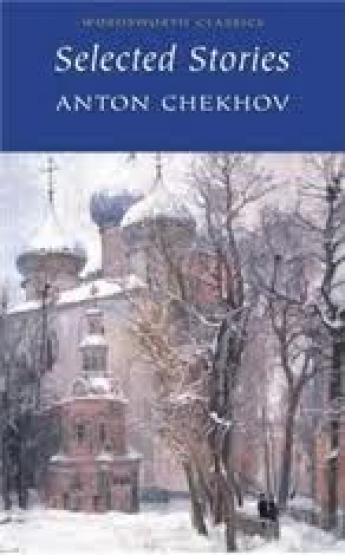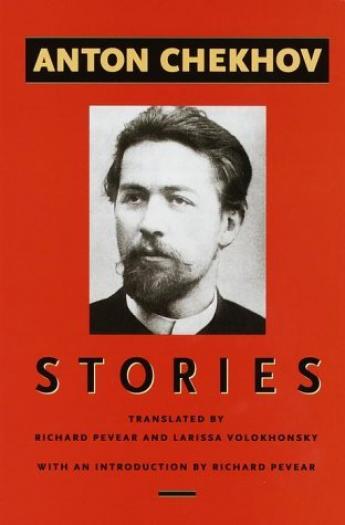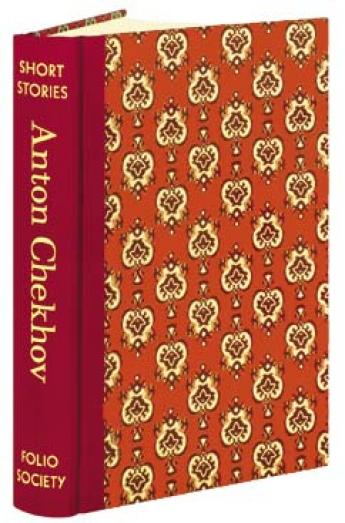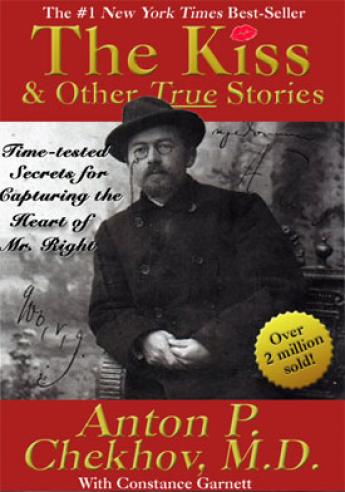Tip
Collecting Rare Books and First Editions - The Short Story and The Private Library (Part III)

By L. D. Mitchell
Between the distance and the horizon on the right there was a flash of lightning so vivid that it lighted up part of the steppe and the spot where the clear sky met the blackness. A terrible cloud was swooping down, without haste, a compact mass; big black shreds hung from its edge; similar shreds pressing one upon another were piling up on the right and left horizon. The tattered, ragged look of the storm-cloud gave it a drunken disorderly air. There was a distinct, not smothered, growl of thunder. Yegorushka crossed himself and began quickly putting on his great-coat.... All at once there was a squall of wind, so violent that it almost snatched away Yegorushka's bundle and mat; the mat fluttered in all directions and flapped on the bale and on Yegorushka's face. The wind dashed whistling over the steppe, whirled round in disorder and raised such an uproar from the grass that neither the thunder nor the creaking of the wheels could be heard; it blew from the black storm-cloud, carrying with it clouds of dust and the scent of rain and wet earth. The moonlight grew mistier, as it were dirtier; the stars were even more overcast; and clouds of dust could be seen hurrying along the edge of the road, followed by their shadows. By now, most likely, the whirlwind eddying round and lifting from the earth dust, dry grass and feathers, was mounting to the very sky; uprooted plants must have been flying by that very black storm-cloud, and how frightened they must have been! But through the dust that clogged the eyes nothing could be seen but the flash of lightning....
Anton Chekhov, The Steppe (1888; trans. Constance Garnett)
The grandson of a serf, Anton Pavlovich Chekhov accomplished more in his all-too-brief 44 years than most folks accomplish in lifetimes twice that long. His handful of plays and 200+ short stories, many of which reflected the difficult circumstances of his early life and education, revolutionized both drama and short fiction.
Forced to pay for his own education by his father's bankruptcy, Chekhov submitted numerous short sketches to newspapers as one way to make money enough to feed and shelter himself and his destitute family. Although eventually able to establish a medical practice, such practice was never lucrative (understandable, given Chekhov's penchant for treating the poor for free). His writing eventually provided most of his, and his family's, income.
Despite being stricken by tuberculosis at age 24, Chekhov's literary output was prodigious and, eventually, well-paying. By age 32 he was able to buy himself and his family a small country estate some 40 miles south of Moscow, where his well-known generosity attracted the sick and poor from miles around. Chekhov's first-hand experiences treating the illnesses of a broad swath of Russian society show up time and again in both his short fiction and his plays.
Always modest, Chekhov thought readers might go on reading his work for no more than seven years after his death (at the time of this remark, he had about six years left to live). He was wrong. Already a literary legend in Russia, the English-language translations of his work undertaken by Constance Garnett spread Chekhov's fame far and wide.
Among Chekhov's more famous short stories are The Lady with the Dog, which Nabokov called "one of the greatest stories ever written;" the humorous A Transgression; the often quite moving Misery; and Chekhov's first great work of mature short fiction, The Steppe, which includes what may well be the best description of a thunderstorm in all of literature.
With his dramas championed by the likes of George Bernard Shaw, and his short stories championed by the likes of Raymond Carver, Chekhov need not have feared posterity's judgement.
To read Garnett's English-language translations of Chekhov's short stories, in the order in which these stories originally were published (in the Russian language), click here.
Next tip: a reminder that short stories are not purely the domain of adult fiction....
The article by L. D. Mitchell was published in The Private Library. It is presented here by permission of the author. Thank you very much.
>>> Part 4
>>> The Private Library



